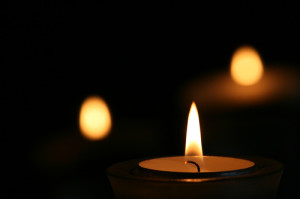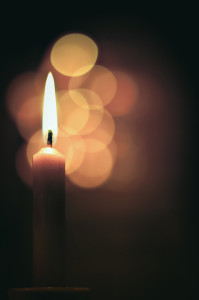It’s cold and dark.
That just about sums up most of December, except for state of irrational exuberance that marks what we’ve come to call the holiday season. Beginning with Thanksgiving and even before, you have probably begun perusing recipes, scanning ads and websites, cleaning and/or decorating your home, and making plans to celebrate—
Christmas? Hanukkah? Solstice? Diwali? Festivus?
Yes, there is a group promoting a newly invented December 23 holiday known mostly by its slogan: Festivus for the Rest of Us. Its icon is a bare aluminum pole, and its recommended meal is meatloaf. Its core tradition is the “Airing of Grievances,” in which participants kvetch about everyone and everything that has let them down in the past year. The founders of Festivus have a trenchant sense of humor, which they’ve aimed squarely at the twin states of expectancy and angst that define this holiday season. In so doing, they’ve put their finger on the sense of the season in every tradition.
 In the northern hemisphere, late December is the best possible time for both expectancy and angst. For children, those opposite-twin emotions revolve around gifts. For adults, they often settle like snowfall upon unresolved issues that come to the fore when families get together for any kind of holiday. Indigenous people worldwide focus their angst on the growing darkness that comes before the cyclical return of the light.
In the northern hemisphere, late December is the best possible time for both expectancy and angst. For children, those opposite-twin emotions revolve around gifts. For adults, they often settle like snowfall upon unresolved issues that come to the fore when families get together for any kind of holiday. Indigenous people worldwide focus their angst on the growing darkness that comes before the cyclical return of the light.
We all know the underlying fear of the dark, cold nights that began this year well before Thanksgiving: What if it never gets warm again, or light? It’s a familiar fear, and not only because its gets dark and cold at this time every year. It’s familiar because we feel it at every kind of downfall. What if I never find a new job, we wonder. What if this ankle doesn’t heal? What if I never feel happy again?
Fear is fear. It is always irrational and utterly effective. As Viktor Frankl once explained in his book-length essay, Man’s Search for Meaning, A man’s suffering is similar to the behavior of a gas. If a certain quantity of gas is pumped into an empty chamber, it will fill the chamber completely and evenly, no matter how big the chamber. Thus suffering completely fills the human soul and conscious mind, no matter whether the suffering is great or little. . . . the “size” of human suffering is absolutely relative.
With every injury, every disappointment—and every winter—we suffer.
And yet the suffering isn’t the whole story. We can all observe without being unduly flippant that every fear describes a joy we had or still hold. And every bit of suffering is an open door to a land we never knew existed.
 New lands, new experiences, and new years are a little bit scary—they lead us through the loss of what we once had and into the unknown. But they’re exciting, too. There is dark joy in sweeping the past away and starting over, and the expectation of new delights is enough to urge us forward through the dark. We imagine ourselves into new jobs and new roles. We find strength we never knew we had and help we never knew would come. We surprise ourselves with the experience of shared laughter as well as shared tears. Change, we find, is both fearful and good.
New lands, new experiences, and new years are a little bit scary—they lead us through the loss of what we once had and into the unknown. But they’re exciting, too. There is dark joy in sweeping the past away and starting over, and the expectation of new delights is enough to urge us forward through the dark. We imagine ourselves into new jobs and new roles. We find strength we never knew we had and help we never knew would come. We surprise ourselves with the experience of shared laughter as well as shared tears. Change, we find, is both fearful and good.
When preparing for an encounter with what is fearful and good—or good and scary—it helps to have someone or something to light your way. That may be why each of the major holidays of this season involve lights. Christmas lights, Hanukkah candles, Yule logs, and the lights of Diwalli all include ways to create heat and light that can warm and sustain us through cold, dark times and into the future.
But you don’t have to wait for the holiday itself to center yourself in the light and hope of the season. You can greet the dusk of each day by lighting a candle, honoring the darkness and its mysteries, and feeling grateful for light in your life—including the light you bring into it yourself.
When the holiday season gets to you, push back and celebrate on your own terms. Say a prayer, utter a meditation, or simply give yourself a moment to enjoy the dance of flames that spring up out of the darkness. Both the darkness and the light bring us gifts, and the gifts are intertwined. That’s something to celebrate!
Recent Posts
-
Photos from Chai Chat at Heartwood with Visiting Tibetan Buddhists
November 8, 2023 -
Keeping the Joy in Walking
July 5, 2023 -
What is Energy Healing & Who Benefits from it?
June 14, 2023 -
Spring is the Liver Season
May 3, 2023 -
What It Means to Become a Sage of Compassion
February 14, 2023 -
5 Ways Bodywork Therapy Benefits YOU!
February 6, 2023

E-Newsletter Sign Up
© 2024 Heartwood. All rights reserved.
